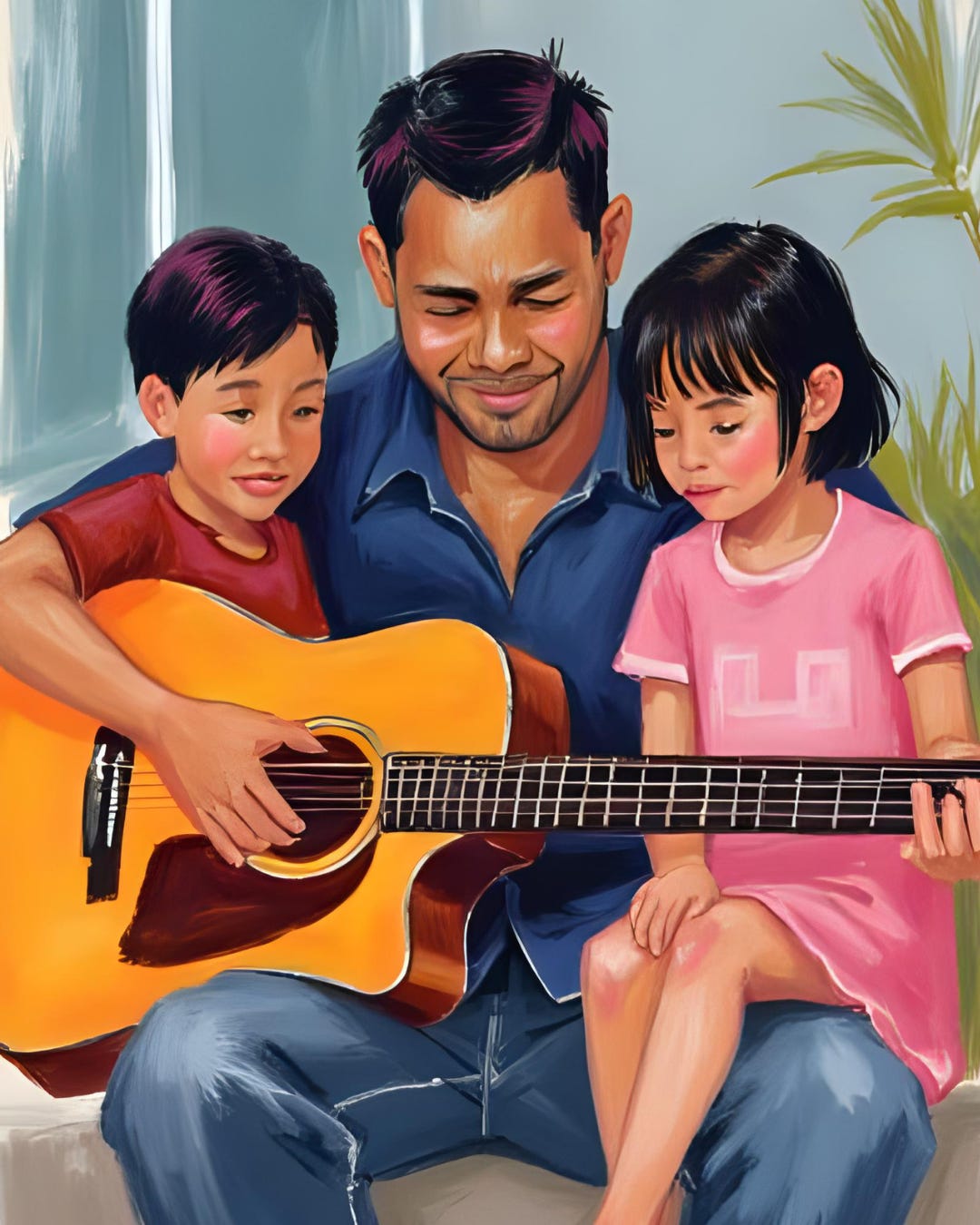Fatherhood, Memory Loss, and Small Victories: A Personal Journey Through Anti-NMDA Encephalitis
What does it mean to be a father when your own mind feels like a stranger?
By Hazwady Nazran – Anti-NMDA Receptor Encephalitis patient, passionate musician and most importantly, loving father to two beautiful children
Before the Storm: A Father’s Joy
Before my illness, being a dad was everything to me. I was the kind of father who showed up—every single day. Weekends were non-negotiable, my sacred time with my son while my wife got a well-earned break. We’d go playground hopping, chasing joy in every corner of the neighborhood. He had this tiny scooter he loved, and I’d push him around, just soaking up the sound of his laughter.
He was only three then, and our bond was everything. My daughter hadn’t arrived yet, so he had my full attention—and I gave it gladly. Those daddy-son adventures were the highlight of my week. I looked forward to them with all my heart.
Facing the Devastation of a Mind Unraveling
Then everything changed. I was diagnosed with Anti-NMDA receptor encephalitis. I didn’t even realize anything was wrong until after I was discharged from SGH. That two-week stay? Completely gone from my memory—like it never happened.
It was my wife who gently helped me see how much I’d changed. I wasn’t myself. I was slower to respond, more easily frustrated—like a stranger had moved into my body and pushed the real me to the side.
The hardest part wasn’t just healing physically or mentally—it was what happened to me as a father. I can’t point to one exact moment when the fog rolled in, but it created distance. A quiet, heartbreaking distance.
I found myself pulling away—not because I didn’t love my kids, but because I was trying to find myself again in the wreckage. Trying to remember how to be the dad I once was.
Even the smallest things felt like climbing mountains. I remember one day during potty training—my wife was resting, and our son had an accident. I told myself, You’ve done this before. You can handle this. But as I brought him to the bathroom to clean up, something inside me snapped. I couldn’t do it. I just broke down.
I sat on the floor, crying—completely overwhelmed. My wife found me like that, tears running down my face, and she gently stepped in to take over. I’ll never forget how small and helpless I felt in that moment.
Holding on to Love and Small Wins
Memory loss came with a quiet kind of heartbreak. Missing those precious moments with my child—it doesn’t get easier. But I try not to get lost in what’s gone.
My wife’s been my anchor through it all, showing me old photos and videos, helping me rebuild the parts I lost. It’s bittersweet—watching moments I lived but can’t remember, like watching someone else’s life on screen.
I don’t carry guilt, but I carry frustration. Not with my family—but with the cracks in the system, the moments I was left in the dark. With how misunderstood my condition still is.
There weren’t many places to turn for support, and that made everything feel heavier. So now, I hold onto the small wins—like making it through the day without crashing, or catching a flicker of something familiar returning to me.
Did my kids notice something was different? Maybe, in their own way. But even when my brain betrayed me, my love for them never wavered. That stayed solid. That stayed mine.
I might forget my keys or what I had for lunch—but how I feel about my family? That’s something I’ll never forget. That’s carved into my heart.
If my kids had to describe me, I hope they’d say I’m fun, full of love, and okay—maybe a little strict. Not perfect, but always there in the ways that count.
What I want most is for them to grow into the best versions of themselves. And if life ever throws them into their own storms, I hope they remember this:
“Indeed, with hardship [will be] ease.
Indeed, with hardship [will be] ease.”
(Qur’an 94:5–6)
To other parents walking this path—whether it's brain fog, illness, or invisible battles—find your people. Lean on them when you can’t stand. Let them love you through it. And hold onto the small wins—they’re not small at all. That’s where real strength lives.




